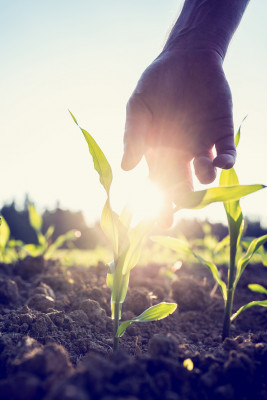Gratitude - a simple path to health and happiness
5 April 2019 | Mindfulness Courses

There is now overwhelming scientific evidence that practising gratitude has positive impacts on health and happiness, and of all the things that contribute to a life well lived, a habit of being grateful might be the simplest path. The long-term positive benefits of gratitude include improvements in mental health, sleep, relationships, social connection, wellness and resilience.
Gratitude is the act of being thankful. It is an acknowledgment that there is good in the world, and, a recognition that this good enriches our life. It naturally creates a deep thankfulness and appreciation and can motivate us to return a kindness shown by others.
Gratitude can also provide immediate benefits by replacing negative emotions with positive mind states. You can’t practice gratitude and be frustrated, envious, annoyed or angry at the same time. Gratitude can be a tool to generate positive emotional states when we find ourselves ruminating.
The accelerated pace and multiple distractions of life mean that a practice of gratitude needs to be an intentional act. We need a planned way of remembering to practice so we don’t forget gratitude’s importance and miss out on the benefits. Here is a simple practice that you might like to try out.
Using the simple acronym of SLOW, which stands for:
- Slow down
- Listen in
- Open up
- Write it down
Three times a day, slow down what you are doing. Intentionally slow down your breathing and slow down your body. Listen in to what is happening all around you. Use all your senses to listen in and really notice. Listen with your ears, listen with your heart, listen with your wisdom. Open up to the feel of your body. We spend so much time in our minds and often only attend to our body when something isn’t working right or we feel pain. Ground your feet, feel into your muscles and your bones. Write it down – something you are grateful for. Anything at all. Use your phone to start a list that you can keep adding too.
The hardest thing about this practice is remembering to do it. I find it helpful to link the practice to something in your environment you see every day. Find a trigger. I’ve got a picture of clouds on my office wall. I’ve spotted a goofy smiling face in one of the clouds and it never fails to make me smile too. This has become my gratitude trigger.
Gratitude is also a powerful way to hack our ancient “survival brain” software that is designed to always notice the negative, to predict things that might go wrong and to spend time and energy planning ways to overcome potential mishaps, challenges and trouble. This programming is great for keeping us alive, but it causes stress and takes a huge toll on our life satisfaction. Gratitude is a practice that helps us slow down and savour the people and things that help, inspire and care for us. It allows us to acknowledge and appreciate what is good and what is going well.
If you’re interested in positively influencing your life with simple but powerful practices like gratitude, register for one of the Mindfulness Based Stress Reduction courses being offered here.
And, if you want more ideas for gratitude practices or want to check out the science - take a look at this great article by the Greater Good Science Centre from the University of California.
Keep going...
Mark
